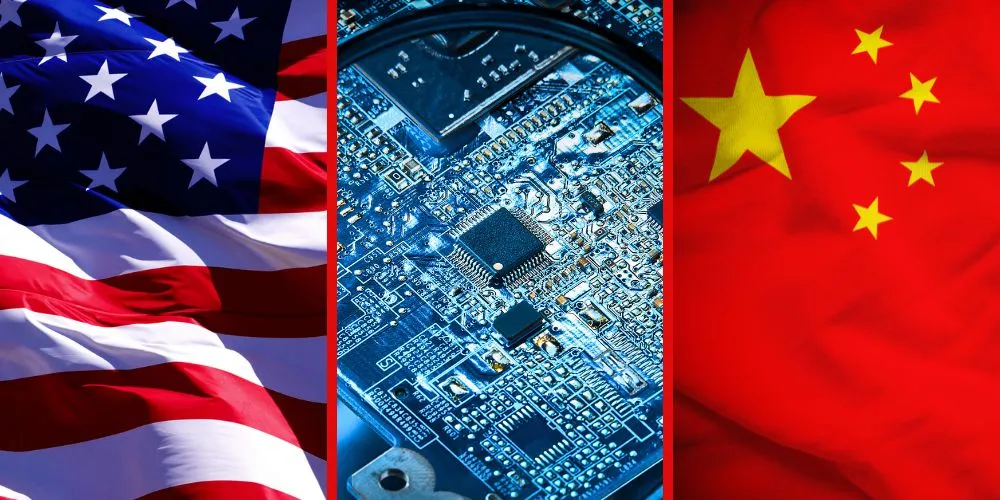Key Points
- Chinese industry associations warn against reliance on U.S. semiconductors. The warnings claim U.S. chips are unsafe but provide no specific evidence.
- Major U.S. chipmakers like Nvidia, AMD, and Intel could face significant impacts.
- The statements coincide with rising trade tensions and new U.S. export controls.
- China urges firms to prioritize local and non-U.S. chip suppliers. The rivalry underscores China’s push for semiconductor self-reliance.
Four major Chinese industry associations issued a rare coordinated warning on Tuesday, advising local companies to exercise caution when purchasing U.S. semiconductor products. The groups emphasized that U.S. chips are “no longer safe” and urged domestic firms to prioritize local alternatives. While the statements did not provide specific reasons for the claims about the reliability or security of U.S. chips, the move signals a significant shift in China’s approach to semiconductor procurement.
These associations represent some of the country’s largest sectors, including telecommunications, digital technology, automotive, and semiconductors, with a combined membership of over 6,400 companies. Their coordinated stance could profoundly impact major U.S. chipmakers such as Nvidia, AMD, and Intel, which have continued selling products in China despite stringent U.S. export controls. The warnings also come at a sensitive time, with trade tensions between the two nations escalating and President-elect Donald Trump’s return to the White House looming.
The Internet Society of China cautioned domestic firms against over-reliance on U.S. chips. It urged companies to explore partnerships with chip manufacturers outside the United States and adopt products from domestic and foreign-owned enterprises operating in China. The organization also highlighted the “substantial harm” caused by U.S. export restrictions to the growth of China’s internet sector, framing the move as a threat to the industry’s long-term development.
Another prominent organization, the China Association of Communication Enterprises, declared that U.S. chips can no longer be considered trustworthy or secure. It called for an investigation into the integrity of the supply chain for critical information infrastructure, adding weight to concerns over potential vulnerabilities stemming from U.S. technology.
These warnings follow the United States’ latest crackdown on China’s semiconductor industry, announced Monday. The crackdown extended export controls to 140 additional companies, including major chip equipment maker Naura Technology Group. The move mirrors previous actions, such as China’s cybersecurity review of U.S. memory chipmaker Micron, which barred Micron from supplying certain domestic industries. Intel has also faced scrutiny from Chinese authorities, with an influential cybersecurity group accusing the company of compromising China’s national security interests.
This intensifying rivalry between the two nations is reshaping the global semiconductor landscape. With China signaling a stronger push for self-reliance and diversification in chip supplies, the ramifications for U.S. chipmakers and the broader tech industry could be far-reaching.




